Loading...
Click here if you don’t see subscription options
Click here if you don’t see subscription options
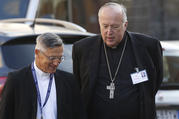
FaithVatican Dispatch
Bishop Robert W. McElroy of San Diego spoke with America on Oct. 27, the day it ended, and shared his reflections on the main topics addressed by the synod and the proposals made in its final document.
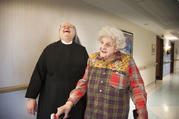
FaithDispatches
“Up until the last five or 10 years, Mass was offered every day. Then it was hard to get priests [every day]; then it was hard to get priests on the weekend. There were [fewer priests] in the parishes and they were being stretched thin.”
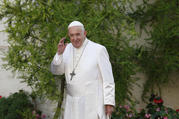
Politics & SocietyNews
Representatives from the Catholic and Orthodox churches and the Muslim and Jewish faiths signed a joint declaration at the Vatican reaffirming each religion's clear opposition to euthanasia and physician-assisted suicide.
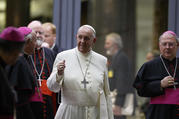
FaithVatican Dispatch
The most important thing to emerge from the synod was the unequivocal commitment by the church in the nine countries of the Amazon region to seek new ways to preach the Gospel and to promote justice and stand in solidarity with its 34 million inhabitants.
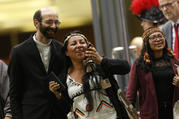
FaithNews
Members of the Synod of Bishops for the Amazon asked that women be given leadership roles in the Catholic Church, although they stopped short of calling for women deacons.
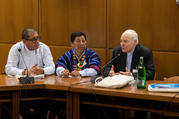
FaithVatican Dispatch
The Mexican cardinal said “integral ecology” and the need for “ecological conversion” have been central points of the synod. “We all agreed that the church should be a factor for wakening consciences to care for the common home,” he said.

Arts & CultureLast Take
The Houston Astros may be down one game in the World Series, but America assistant editor Vivian Cabrera is a true believer.
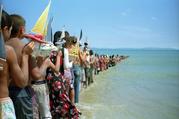
Arts & CultureArt
“The Warmth of Other Suns: Stories of Global Displacement” is a lesson on how art can awaken us to the unprecedented crisis of refugees and displaced persons now numbering 70.8 million.
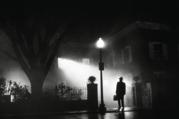
Arts & CultureFilm
“The Exorcist” exposed people around the world to the question of evil in a new and terrifying way. It also laid the groundwork for a different kind of horror story.

Politics & SocietyNews
A group of nonprofits in Kansas argues the loans prey on people who can least afford triple-digit interest rates.
